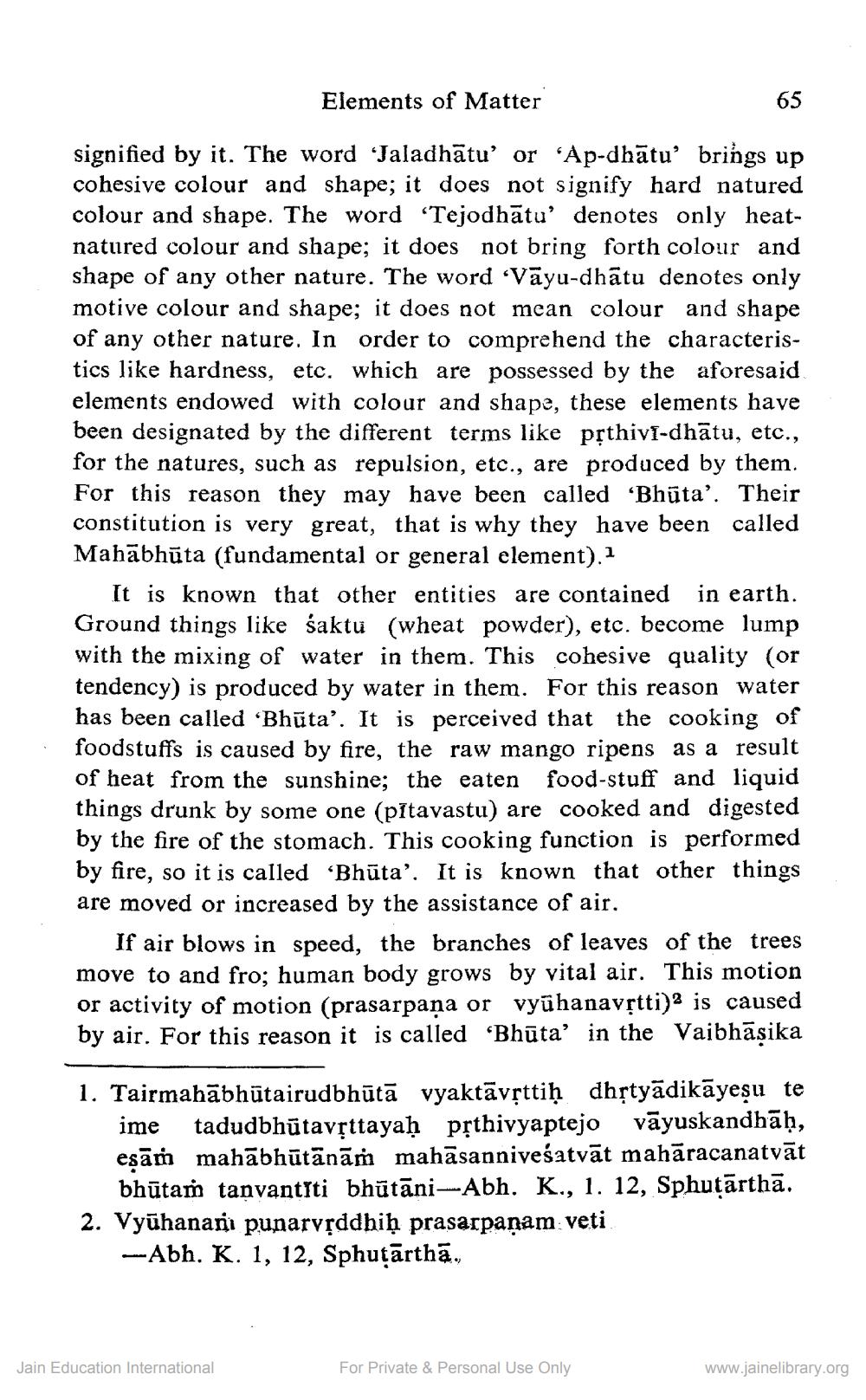________________
Elements of Matter
65
signified by it. The word 'Jaladhātu' or 'Ap-dhātu' brings up cohesive colour and shape; it does not signify hard natured colour and shape. The word "Tejodhātu' denotes only heatnatured colour and shape; it does not bring forth colour and shape of any other nature. The word “Vāyu-dhātu denotes only motive colour and shape; it does not mean colour and shape of any other nature. In order to comprehend the characteristics like hardness, etc. which are possessed by the aforesaid. elements endowed with colour and shape, these elements have been designated by the different terms like pệthivi-dhātu, etc., for the natures, such as repulsion, etc., are produced by them. For this reason they may have been called 'Bhūta'. Their constitution is very great, that is why they have been called Mahābhūta (fundamental or general element). 1
It is known that other entities are contained in earth. Ground things like saktu (wheat powder), etc. become lump with the mixing of water in them. This cohesive quality (or tendency) is produced by water in them. For this reason water has been called 'Bhūta'. It is perceived that the cooking of foodstuffs is caused by fire, the raw mango ripens as a result of heat from the sunshine; the eaten food-stuff and liquid things drunk by some one (pītavastu) are cooked and digested by the fire of the stomach. This cooking function is performed by fire, so it is called “Bhūta'. It is known that other things are moved or increased by the assistance of air.
If air blows in speed, the branches of leaves of the trees move to and fro; human body grows by vital air. This motion or activity of motion (prasarpana or vyuhanavștti)2 is caused by air. For this reason it is called 'Bhūta' in the Vaibhāşika
1. Tairmahābhūtairudbhūtā vyaktāvșttiḥ dhịtyādikāyeşu te
ime tadudbhūtavịttayaḥ prthivyaptejo vāyuskandhāḥ, eşām mahābhūtānāṁ mahāsanniveśatvāt mahāracanatvāt
bhūtam tanvantiti bhūtāni-Abh. K., 1. 12, Sphuţārthā. 2. Vyūhanani punarvsddhiḥ prasarpaņam veti
-Abh. K. 1, 12, Sphuţārthā.
Jain Education International
For Private & Personal Use Only
www.jainelibrary.org




